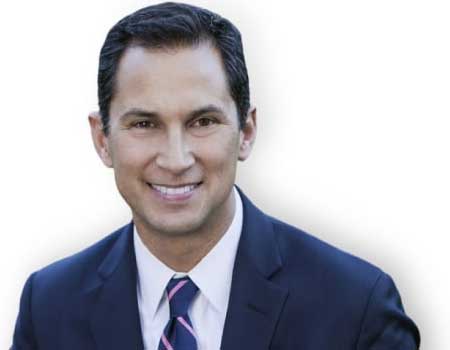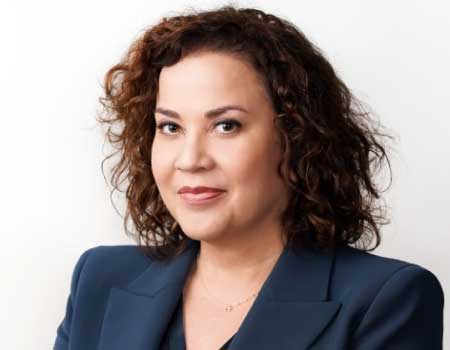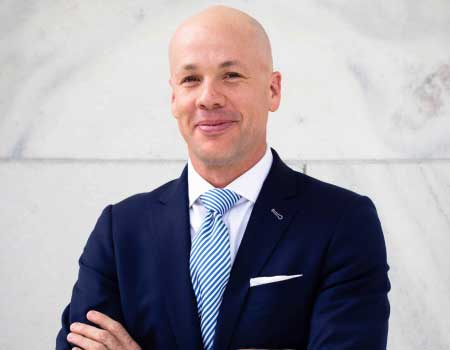Bloomberg Government
Ferox Director Michael Taggart was featured in the Bloomberg Government article, “Kids’ Online Safety Measure Faces Hurdles, Hope Ahead in House.”
“There are still a lot of hurdles for it to clear—both in terms of process, policy, and politics,” said lobbyist Michael Taggart, government affairs director at Ferox Strategies, who previously worked for House Energy and Commerce Chair Cathy McMorris Rodgers. “But at the end of the day, I feel like the positives of having a vote on protecting kids online probably outweighs the negatives.”
Check out the full article below.
Kids’ Online Safety Measure Faces Hurdles, Hope Ahead in House.
By Oma Seddiq
July 30, 2024
- Senate expects to vote this week on Kids Online Safety Act
- Weighing First Amendment concerns against cyberbullying fears
Sweeping legislation to rein in social media companies is expected to pass the Senate but faces a rocky path ahead in the House, muddying a years-long effort to protect kids on the internet.
The Senate is set to vote on Tuesday on a package of bills (S. 2073) intended to improve children’s online safety and privacy before the chamber leaves for a month-long recess. But the House is already out, delaying the legislation’s consideration until September—if lawmakers even have the appetite for it.
One of the proposals has drawn immense backlash from both the left and right, complicating its chances in the House. Opponents say the Kids Online Safety Act (S. 1409), or KOSA, is a well-intentioned but flawed bill that would lead to online censorship and surveillance.
“KOSA hands government bureaucrats a powerful weapon to wield over social media websites—one that threatens every American’s ability to express themselves online,” said Foundation for Individual Rights and Expression Chief Counsel Robert Corn-Revere. “Protecting minors online does not require putting anyone’s First Amendment rights in jeopardy.”
Time is also running out for legislative action. The House is juggling several priorities, including the forthcoming election and budget negotiations, with around four weeks left in session this year.
Yet the bill’s supporters, ranging from mental health organizations to tech policy nonprofits to youth online safety groups, have fiercely disputed the criticisms and plan to ramp up their grassroots campaigning to pressure the House to pass the legislation. They say the measure would keep kids safe by requiring companies to control the design—not the content—of their platforms.
“The big bipartisan majority vote is going to send a message—along with the parents and kids—who are going to continue reaching out,” said Sen. Richard Blumenthal (D-Conn.), the lead sponsor of KOSA. “They are our best advocates and they’re going to make their voices and faces known.”
‘Historic’ Senate Vote
Lawmakers on Capitol Hill have faced growing national concerns that social media companies, like Meta Platforms Inc.‘s Instagram, TikTok Inc., and Snap Inc.'s Snapchat, are harming kids and their mental health through addictive product features and content that promotes cyberbullying, violence, substance abuse, eating disorders, and other dangers.
Blumenthal, with Sen. Marsha Blackburn (R-Tenn.), in response crafted KOSA, which would create a legal “duty of care” for social media companies to prevent and mitigate potential harms to children arising from design features like app notifications and auto-playing videos. It would also require companies to strengthen privacy protections for kids and establish more parental controls. Violators would be subject to penalties enforced by the Federal Trade Commission.
The Senate this week is poised to approve the bill, which has gone through various iterations and earned overwhelming bipartisan support in the chamber following more than two years of negotiations. If passed, it would become the most significant congressional action to regulate the technology industry in more than two decades. The last time Congress passed a bill to protect kids online was in 1998—before the launch of today’s biggest social media platforms.
“We haven’t done any kind of consumer protection on Big Tech or social media in decades. This move is long overdue,” Blumenthal said last week, calling this moment “historic.”
The bill’s advocates say the planned Senate vote has brought them long-awaited relief. Those feelings have dissipated as attention shifts to the legislation’s fate in the House.
Ava Smithing, director of advocacy and operations at the Young People’s Alliance, said she’s “frustrated” the House left early for August recess without considering the bill.
“The Senate was able to do their part and we are grateful,” said Smithing, a youth advocate who has testified about harms on social media. “All eyes will be on House leadership to make sure they do theirs as well.”
Escalating Criticisms
Unlike the Senate, the House is still in early stages of grappling with the legislation.
Floridians Gus Bilirakis (R) and Kathy Castor (D) introduced the House companion (H.R. 7891) in April. Less than 10 percent of the chamber has endorsed the bill so far. The House Energy and Commerce Committee hasn’t advanced it to the floor. Lawmakers have raised several unresolved issues with the measure.
Civil rights and technology trade groups, including the American Civil Liberties Union and the Center for Democracy and Technology, have rallied against the bill and called on Congress to oppose it. They argue that in its current form, the legislation would lead social media companies to over-moderate and censor content that could be deemed harmful by the government, threatening free expression online.
That resistance continues to grow. The advocacy arm of Students for Life of America, a prominent anti-abortion group, said last week that the FTC could weaponize the bill to suppress “Pro-Life free speech.”
Champions of the bill have repeatedly dismissed the attacks as mischaracterizations. “The fears are unfounded,” Blackburn said last week.
Both House Republicans and Democrats have sounded the alarm over the barrage of criticisms. Privately, Republican leaders have echoed the concerns, according to a senior tech lobbyist and a children’s online safety advocate familiar with the discussions who were granted anonymity to speak candidly.
Yet the effort is far from doomed. Publicly, House Speaker Mike Johnson (R-La.) said he’s interested in finding a path forward, delivering hope to the bill’s advocates.
“I am looking forward to reviewing the details of the legislation that comes out of the Senate. Parents should have greater control and the necessary tools to protect their kids online,” Johnson said in a statement. “I am committed to working to find consensus in the House.”
Energizing the House
House Energy and Commerce Chair Cathy McMorris Rodgers (R-Wash.), a champion of data privacy protections who’s retiring this year, has likewise expressed a commitment to moving the legislation forward.
Rodgers is pleased “to see the Senate take this step” and is “fully committed to working together to continue advancing these policies and hope to mark them up at full committee as soon as possible,” spokesperson Sean Kelly said.
Still, finding time to negotiate an agreement is tricky given the tight legislative calendar. Many advocates say they wish to avoid that scenario by pushing House lawmakers to take up the Senate bill instead when they return in the fall.
Senators say a strong bipartisan vote in their chamber will pressure the House to act. Advocates also argue that it would be politically damaging during an election season for House Republicans to tank a bill meant to protect kids online, forcing them to hold a vote.
“There are still a lot of hurdles for it to clear—both in terms of process, policy, and politics,” said lobbyist Michael Taggart, government affairs director at Ferox Strategies, who previously worked for Rodgers. “But at the end of the day, I feel like the positives of having a vote on protecting kids online probably outweighs the negatives.”
A coalition of parents and young people who have helped drive support for the bill in the Senate say they intend to replicate that momentum in the House this fall. Several of the parents said their children died related to harms on social media. Youth advocates say online platforms have regularly exposed them to dangerous content and need to be held accountable.
“Never underestimate the galvanizing power of parents and kids,” said Sacha Haworth, executive director of the Tech Oversight Project. “No one thought we would pass the Senate either and they organized themselves, they showed up, they didn’t back down.”
“I know that they will do the same in the House,” she said.
Read More


































